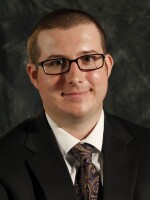This week, as the nation marks the 50th anniversary of the signing of the Civil Rights Act of 1964, the Florida man known as the father of that legislation, Dr. Robert B. Hayling, will be in St. Augustine.The city is a focal point in both the history of the civil rights movement and Hayling’s own story.
Dr. Robert. B. Hayling, the father of both the St. Augustine Movement and the 1964 Civil Rights Act, was inducted into the Florida Civil Rights Hall of Fame this May.
On Wednesday afternoon, 50 years after the act was signed, Hayling will be honored in St. Augustine by city officials at the city’s Foot Soldiers Monument, which honors the young men and women he helped organize in protest.
Born and raised in Tallahassee, Hayling opened a dental practice in St. Augustine in 1960 after attending dental school in Nashville.
Dr. Casey Welch, sociology professor at Flagler College, said Hayling likely had not planned on becoming a civil rights organizer when he left Tennessee.
“But when he saw the inequalities here, he began to mobilize, he became a representative, along with Rev. Goldie Eubanks, of the NAACP Youth Council,” Welch said.
The St. Augustine Four
It was in that position that Hayling began to organize demonstrations, including the sit-in that led to the 1963 arrest of “The St. Augustine Four” – two young men and two young women arrested for attempted to order at a segregated St. Augustine lunch counter.
“Hayling’s legal status or position was wrapped up in that because each of them refused to sign statements that said they would refrain from protesting anymore and identifying Hayling as having incited youthful deviance or delinquency,” Welch said.
The four were sent away for six months to juvenile detention facilities before being released by order of the governor. The case received national attention, and put St. Augustine on the radar of national civil rights leaders.
Presidential Success Helps The Movement Grow
Hayling continued to draw attention to the racial injustice being felt in St. Augustine as the city prepared to celebrate it’s quadricentennial, as University of North Florida historian Dr. Alan Bliss explains.
“The civic leadership in St. Augustine invited then Vice President Lyndon Johnson to come to the city and help kick off the planning of it’s 400th anniversary," Bliss said.
“Dr. Hayling, reached out to Johnson and discouraged him from coming, saying that he did not think it would be a faithful reflection of the Kennedy-Johnson administration or the federal government of the United States to celebrate the history of a place that was so sharply segregated.”
Johnson agreed to attend the event, on the condition that members of the city’s black community be invited to attend and that seating not be segregated.
Johnson also asked local leaders to meet with Hayling and other activists to discuss their concerns. The meeting took place, but the only city official in attendance was a secretary with a tape recorder.
Despite still being written off by local officials, Bliss said Hayling’s success with Johnson made him realize the potential of St. Augustine’s place in the movement.

“What this taught Dr. Hayling was that St. Augustine was in a place geographically, and in a place chronologically, where St. Augustine because of those things could really have an outsized voice in calling attention to the injustice of racial discrimination and white supremacy in the South,” he said.
Becoming The "Father" Of The Civil Rights Act
During his hall of fame induction, Hayling explained how his work with political leaders and other luminaries of the civil rights movement led to the July 2 signing of the Civil Rights Act, and how he came to be known as the father of the landmark legislation.
“Dr. King and other civil rights organizations appealed to me to give Lyndon Johnson, as president, a cessation period of two weeks before he would sign the Civil Rights Act,” he said.
“I said ‘no way, we were going to continue to demonstrate and do whatever we had to do, until that act was signed.’”
In addition to being honored by the city, on Wednesday Hayling’s former dental office at 79 Bridge Street will officially open as the Civil Rights Museum of St. Augustine.
You can follow Patrick Donges on Twitter @patrickhdonges.






